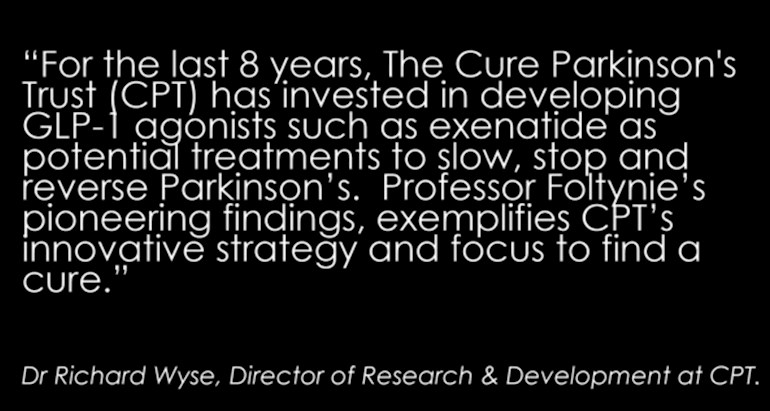I first read about GLP-1 receptor agonists recently. They are diabetes drugs.
However, I immediately thought that they would be a great thing to try for Parkinson's.
Why? Because GLP 1 receptor agonists can lower inflammation, calm microglial cells, and reduce programmed cell death.
Well, it turned out that the Cure Parkinson's organization already has been investigating this class of drugs for benefits to people with Parkinson's.
So far, there are three existing drugs in the GLP-1R agonist class. They are called liraglutide, lixisenatide, and exenatide. This study is about exenatide. All three of these drugs are delivered by injection. (Bydureon is just a form of exenatide that you only have to take once a week, instead of daily.)
CURE PARKINSON'S WEBPAGE ON THE STUDY:
cureparkinsons.org.uk/news/...
quote:
“This is a very promising finding, as the drug holds potential to affect the course of the disease itself, and not merely the symptoms. With existing treatments, we can relieve most of the symptoms for some years, but the disease continues to worsen.”
-- Professor Tom Foltynie (UCL Institute of Neurology).
LANCET ARTICLE :
Athauda, Dilan, et al. "Exenatide once weekly versus placebo in Parkinson's disease: a randomised, double-blind, placebo-controlled trial." The Lancet 390.10103 (2017): 1664-1675.
thelancet.com/journals/lanc...
This is a 2017 article. There are other studies underway. Another GLP-1R agonist, Lixisenatide, may be more effective. There are various things to consider.

